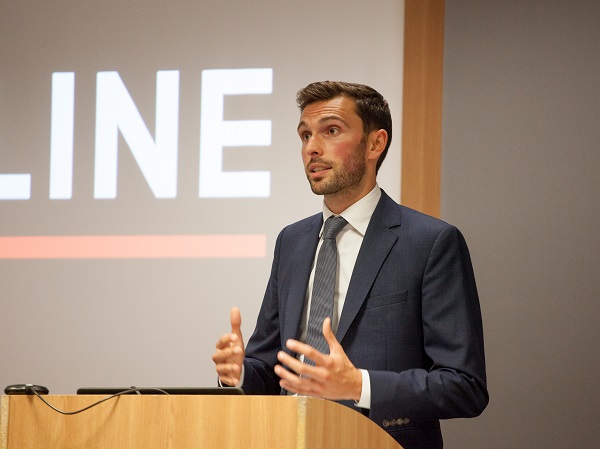
Birmingham children’s services will partner the Frontline fast-track social work scheme as part of efforts to turnaround performance after a succession of inadequate-ratings.
The move will see up to 24 Frontline participants based in Birmingham’s services after they join the training programme in summer 2017.
It marks the first step in Frontline’s expansion into the West Midlands. The programme plans to secure partnerships with other councils that will see up to 60 participants based in the region.
Frontline, which seeks to attract “high-achieving graduates and career switchers” into children’s social work, currently operates in Greater Manchester and Greater London. Services in the North East will take on trainees this summer.
Josh MacAlister, the organisation’s chief executive, said Frontline was looking forward to contributing to efforts to improve support for children in the West Midlands.
By 2021 the government wants one in four new children’s social workers to have trained through Frontline or the Step Up to Social Work fast-track schemes. Ministers will back the expansion with £100m.
Part of Birmingham’s ‘improvement journey’
Birmingham’s children’s services have a troubled past, having been rated ‘inadequate’ by Ofsted in its last three inspections. In 2013, the chief inspector of Ofsted branded the services a ‘national disgrace’, and they have been under the guidance of government-appointed children’s commissioners since 2014.
Alastair Gibbons, Birmingham’s executive director of children’s services, said the partnership with Frontline was part of a package of efforts to turnaround performance.
He said: “We’re very focused on relationship-based social work with families and committed to our social workers being skilled practitioners, who are well supported and have all those qualities of being reflective and analytical in an evidence-based way.
“In the past year of our improvement journey we’ve set out a series of principles along those lines. We feel they align very well with the principles Frontline want to establish with their social work training.”
‘Forefront’ of reform efforts
Gibbons said Birmingham wanted to be “at the forefront” of the Department for Education’s social work reform programme.
A report tabled for a council meeting to be held tonight outlines several ways Birmingham is looking to implement DfE-backed reforms locally. As well as the Frontline partnership, other changes include:
- A proposal in partnership with Morning Lane Associates to secure £3.4m from the DfE’s innovation fund for a new approach to work with high risk young people.
- Working with PAUSE, a current DFE innovation fund project that works with young women who have had children removed in care proceedings.
- Discussions with other councils about setting up a regional adoption agency.
Last month it was revealed Birmingham’s children’s services are likely to be shifted from council control to an independent trust – another model favoured by the DfE.
The announcement was brought forward in response to the screening of an undercover documentary on child protection in Birmingham by Channel 4’s Dispatches.
The move to a trust has still to be considered by Birmingham’s cabinet. Gibbons said if it goes through the main principles of the trust will be “to protect and increase all of our practice development improvements” and would “not change the direction of travel”.
He said the decision to take on 24 Frontline trainees was in addition to around 50 placements Birmingham offered to social work students on traditional university courses each year.


 Bournemouth, Christchurch and Poole
Bournemouth, Christchurch and Poole  Hampshire County Council
Hampshire County Council  Lincolnshire County Council
Lincolnshire County Council  Norfolk County Council
Norfolk County Council  Northamptonshire Children’s Trust
Northamptonshire Children’s Trust  South Gloucestershire Council
South Gloucestershire Council  Wiltshire Council
Wiltshire Council  Wokingham Borough Council
Wokingham Borough Council  Children and young people with SEND are ‘valued and prioritised’ in Wiltshire, find inspectors
Children and young people with SEND are ‘valued and prioritised’ in Wiltshire, find inspectors  How specialist refugee teams benefit young people and social workers
How specialist refugee teams benefit young people and social workers  Podcast: returning to social work after becoming a first-time parent
Podcast: returning to social work after becoming a first-time parent  Podcast: would you work for an inadequate-rated service?
Podcast: would you work for an inadequate-rated service?  Family help: one local authority’s experience of the model
Family help: one local authority’s experience of the model  Workforce Insights – showcasing a selection of the sector’s top recruiters
Workforce Insights – showcasing a selection of the sector’s top recruiters 

 Facebook
Facebook X
X LinkedIn
LinkedIn Instagram
Instagram
Comments are closed.